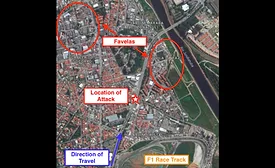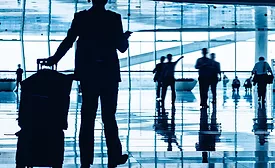Home » travel security
Articles Tagged with ''travel security''
International Travel Training: How Employees Should Respond to a Mugging
“Oh C.R.A.P. I’m about to get mugged.”
December 12, 2017
Delivers Fast Warning of Real-Time Threats Worldwide
Dashboard for Corporate Security by Dataminr
August 1, 2017
Sign-up to receive top management & result-driven techniques in the industry.
Join over 20,000+ industry leaders who receive our premium content.
SIGN UP TODAY!Copyright ©2026. All Rights Reserved BNP Media.
Design, CMS, Hosting & Web Development :: ePublishing













